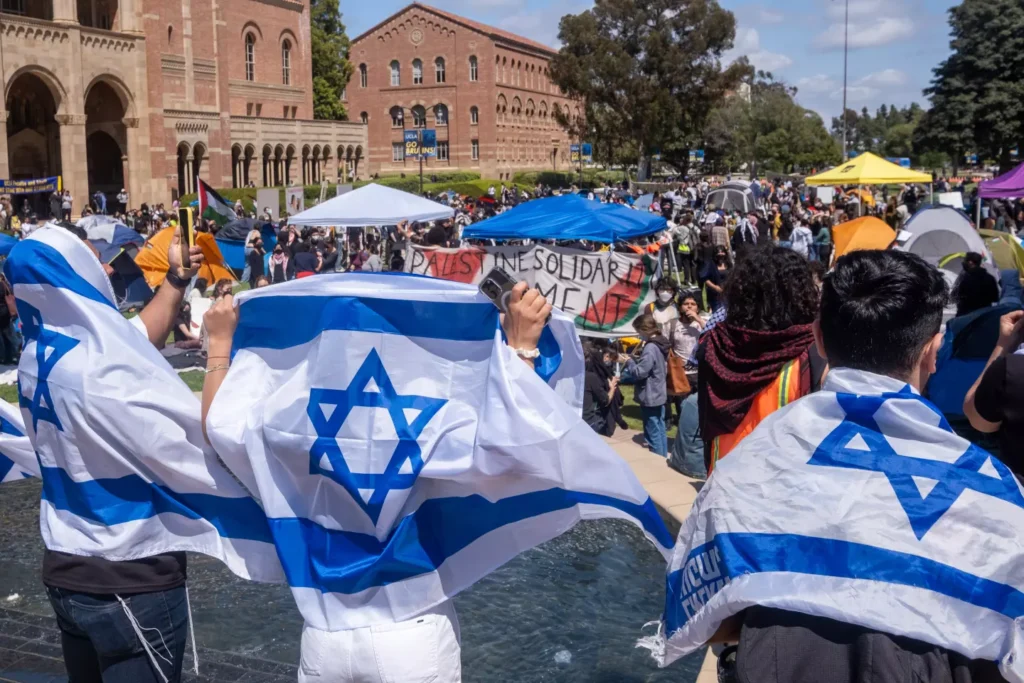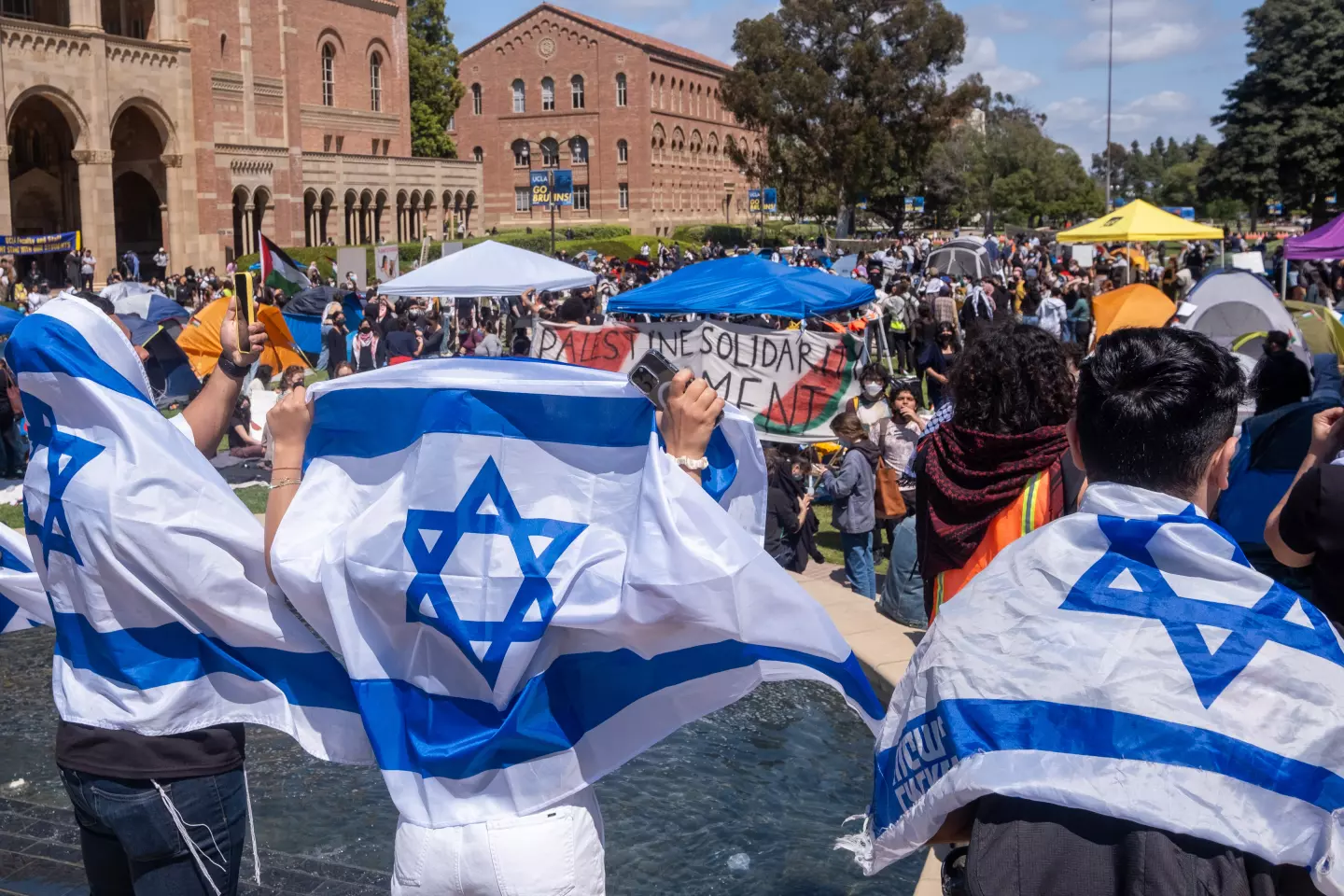“California university protests, UCLA protest, USC commencement cancellation, pro-Palestinian demonstrations, campus security measures, free speech on campus, Israel-Palestine conflict, university political activism, higher education news, student rights”
“Explore the escalation of pro-Palestinian protests across California universities, including UCLA and USC. This article provides a comprehensive analysis of the demonstrations, university responses, legal implications, and the ongoing debate over free speech and campus security amidst the Israel-Hamas conflict.”

Over the past few days, California’s universities have become the epicenters of rising tensions and protests concerning the Israel-Hamas conflict. Notably, campuses like UCLA, UC Santa Barbara, and USC have witnessed significant pro-Palestinian demonstrations, which have sometimes resulted in clashes with counterprotesters and have prompted serious security and administrative responses.
The Spread of Protests Across California Campuses
Starting at UCLA, a significant encampment of protesters gathered, drawing attention and sparking confrontations with opposing groups. This scenario repeated across various campuses, including a teach-in at UC Santa Barbara and the establishment of encampments at UC Berkeley. At Berkeley, the historic site for free speech movements, protesters called for the university to divest from companies that manufacture weapons linked to Israel, emphasizing the campus’s legacy of activism.
At USC, the situation escalated with the arrest of 93 protesters, leading to a cancellation of the main-stage commencement ceremony. This decision came after a controversy involving a pro-Palestinian valedictorian being denied a speaking slot at the graduation event, reflecting the deep divisions and heightened emotions surrounding the conflict.
Tensions at UCLA and the Response
The encampment at UCLA saw hundreds of demonstrators, with tensions flaring particularly in the afternoon and evening as counterprotesters breached the encampment. To manage the situation, metal barricades were erected, though these did little to ease the confrontations, with chants and protests continuing into the night. The UCLA administration has been closely monitoring the situation, striving to balance the right to free expression with the need to maintain order and safety on campus.
USC’s Controversial Decisions and Fallout
USC has been particularly spotlighted for its handling of the protests. The decision to cancel the commencement speech of a pro-Palestinian valedictorian and later the entire main commencement ceremony was met with widespread criticism from students and faculty alike. Many condemned the administration’s decision to call in the Los Angeles Police Department (LAPD), arguing that it unnecessarily escalated tensions and stifled peaceful protest. Critics argue that these actions reflect a broader issue of how universities are handling expressions of political dissent, particularly those pertaining to the Israel-Palestine conflict.
Legal and Civil Rights Implications
The arrests at USC and the subsequent police presence on campuses have raised significant concerns about the suppression of free speech and assembly. Organizations like the Council on American-Islamic Relations (CAIR) have criticized the forcible suppression of peaceful protests, suggesting that these actions are part of a nationwide trend to censor pro-Palestine advocacy on college campuses. This has sparked a broader debate on the role of universities in political conflicts and the extent to which they should allow or support political activism among their students.
The Role of Community and External Influences
Amid these protests, community reactions have varied. Some Jewish community groups have condemned the protests, particularly when they perceive the chants and messages to be antisemitic. Conversely, many Palestinian students and supporters argue that their protests are a necessary expression of solidarity with Palestinians and a call to action against what they view as complicity in human rights violations.
Moving Forward: Education and Dialogue
The ongoing events highlight a critical need for dialogue and education on complex issues like the Israel-Palestine conflict. At UC Santa Barbara, for instance, the focus on educational workshops and art projects aimed at fostering a deeper understanding of the issues at hand suggests a pathway forward. By emphasizing education and peaceful engagement, universities can play a crucial role in shaping informed and empathetic future leaders.
In conclusion, the unfolding events at California’s universities are more than just local news; they are a microcosm of the global tensions surrounding the Israel-Hamas conflict. How these institutions respond to such protests — balancing security, free expression, and the need for educational dialogue — will likely set important precedents for handling political activism in educational settings across the nation.
Read More-
